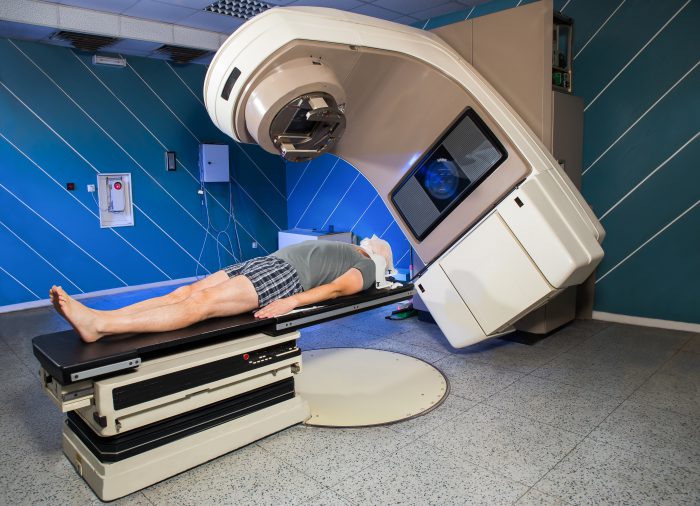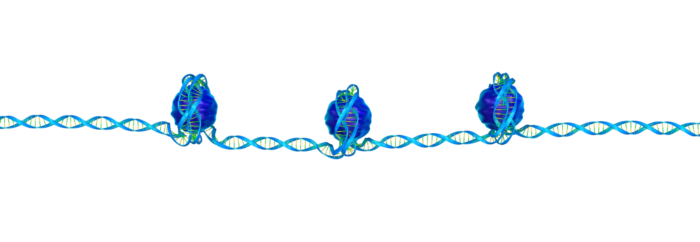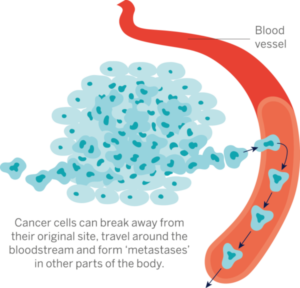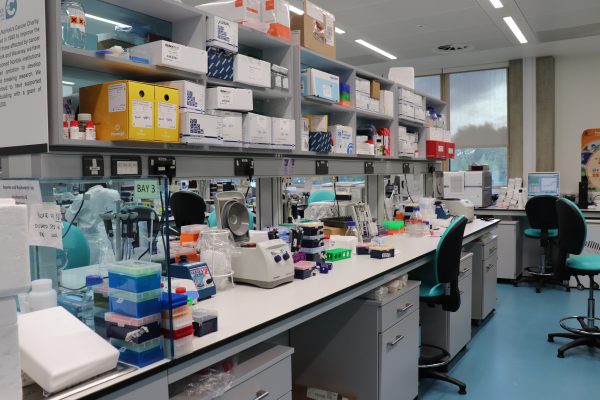

Jenny is a Research Fellow at Newcastle University focused on exploiting glycan sugars to improve the diagnosis and treatment of prostate cancer.
Ning is a principal investigator at the University of Sheffield and his main research interest is using multi-disciplinary research approaches to understand mechanisms involved in prostate cancer dormancy and bone metastasis.
Kirsty is a post-doctoral researcher. She has a background in cancer research and is interested in developing new treatments for advanced prostate cancer.



This research is supported by a co-sponsored award from Prostate Cancer Research and The Mark Foundation for Cancer Research.

There are trillions of cells in the human body which are continuously renewing themselves to replace old or damaged tissue.
When this renewal process gets out of control and begins to invade healthy tissue, it is called cancer. Cancer cells can break away from their original site, such as the prostate, travel around the bloodstream and settle in other parts of the body, forming ‘metastases’ or ‘secondary tumors.’ Prostate cancer often spreads to bone. This can be very painful and there is currently no cure.

![]()
Why and how prostate cancer spreads to bone are huge unanswered questions in prostate cancer research.
The answers could lie in the sugars that coat all our cells. These sugars are important for almost all our biological processes and cancer is known to make changes to them. Certain types of sugar are linked with more aggressive cancers. However, the sugars are also very complex which has made them difficult to study until recently.
Jennifer hopes to identify sugar-targeting drugs that can be used to treat prostate cancer and offer new treatments to those people who have no other options. These drugs have already been developed for other cancers and are known to be safe. This means that if they are shown to be successful against prostate cancer, they could be translated into the clinic and made available to patients quicker than other new treatments.
Jennifer and her team have identified three types of sugars found at high levels in tumours and blood from men whose prostate cancer has spread to bone. These sugars make prostate cancers grow very fast and more likely to spread to bone.
This discovery provides an important opportunity as drugs that target these sugars have already been developed for other diseases. The team will try to use these drugs to stop prostate cancer from spreading to bone and explore whether they could be a new treatment option for those with advanced prostate cancer. They will also explore how these special sugars help prostate cancer cells to grow in bone.

The team have previously developed a blood test called GlycoScore which can detect changes to the sugars in a patient’s blood and ultimately be used to diagnose prostate cancer. By combining the results from this project with GlycoScore, Jennifer and the team hope to enable personalised treatment pathways. This would mean that people with prostate cancer could receive personalised sugar-targeting treatments based on their individual GlycoScore results.
This project is still in the early stages and Jennifer and her team are still investigating the role played by the three types of sugars that they identified in men with prostate cancer that had spread to bone. They hope to be able to unravel the role of these sugars and identify sugar-targeting drugs that could be repurposed to treat prostate cancer.
Jennifer will be working with researchers from Newcastle University, Sheffield University and Imperial College London as well as further afield at Stanford University and the University of South Carolina in the US. They will be bringing a wide range of skills and expertise to the project, from prostate cancer models to clinical trials to imaging.
““We can think of a prostate cancer cell without its glycan sugars as like a bird without its feathers. So if we can remove these feathers from prostate cancer cells we can stop the prostate cancer growing and spreading.”
Dr Jennifer Munkley
Newcastle University